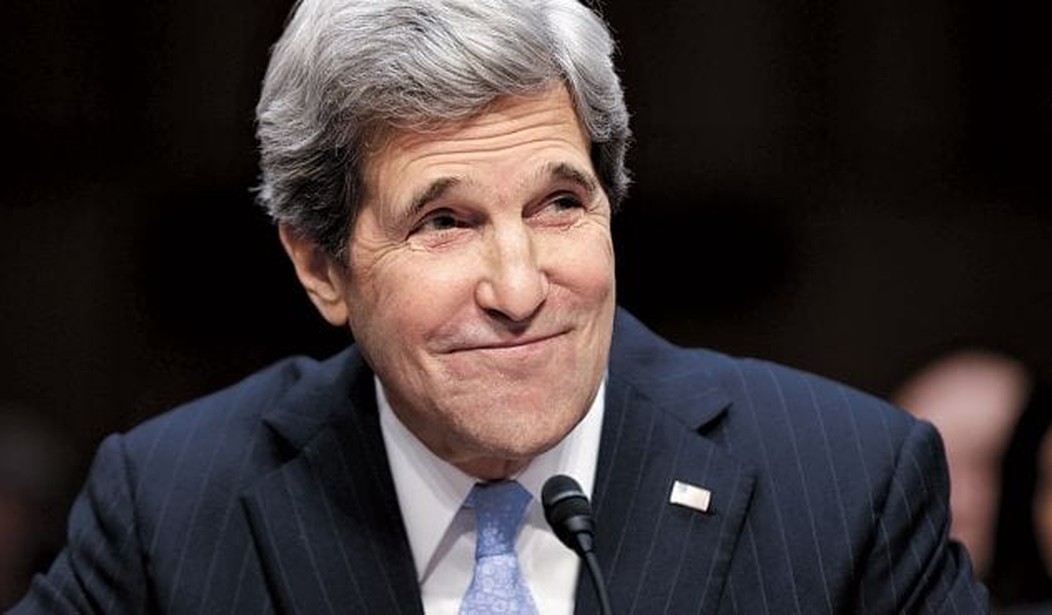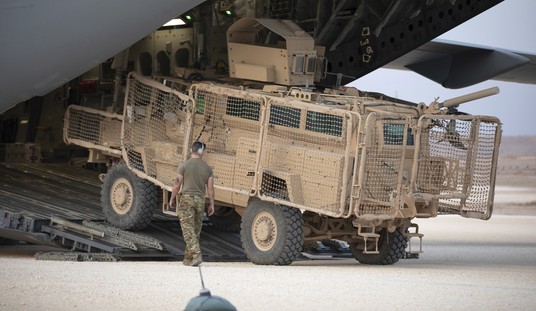Congress will have to wait until the first anniversary month of the Benghazi attack to hear from one of the State Department scapegoats, but a Senate committee did hear this week that the State Department is sinking a good chunk of its embassy enhancement funds into the Netherlands and Norway as opposed to higher-risk areas.
The House Foreign Affairs Committee at the last minute this week postponed a Benghazi hearing in which one of four State Department officials placed on administrative leave after the terrorist attack, the deputy assistant secretary of state for Near Eastern affairs, was due to testify.
“Mr. Raymond Maxwell and others will testify before the House Foreign Affairs Committee in September,” Chairman Ed Royce said in a Tuesday night statement calling off the Thursday hearing. “The Committee will continue its work reforming the Accountability Review Board process that investigated the facts surrounding the terrorist attacks in Benghazi, Libya.”
Maxwell has been writing poetry since being suspended with lynching imagery that appears to reflect his feelings that he’s being made a scapegoat. “I had no involvement to any degree with decisions on security and the funding of security at our diplomatic mission in Benghazi,” he said in May.
On Tuesday, Senate Foreign Affairs Committee Chairman Robert Menendez (D-N.J.) held a hearing to garner support for his Embassy Security Act, which he named for Ambassador Chris Stevens, Sean Smith, Tyrone Woods, and Glen Doherty. The crux of the bill is sinking more money into embassy construction and security, and it has no GOP co-sponsors.
“At the end of the day, this is not an either/or choice. We need to address both the construction of new embassies that meet security needs and we need to do what we can to secure existing high-risk posts where we need our people to represent our interests and where new construction is not an option,” Menendez said.
He quoted the State Department’s Accountability Review Board report on Benghazi, which said, “The solution requires a more serious and sustained commitment from Congress to support State Department needs, which, in total constitute a small percentage both of the full national budget and that spent for national security.”
Gregory Starr, the acting assistant secretary for Diplomatic Security and director of the Diplomatic Security Service, said the danger at U.S. embassies is “nothing new.”
“The fact remains that we will not, even with a most willing and capable government partners as our — as we have in many places around the world, we will not stop terrorists or extremists from attacking us in every instance,” Starr testified. “…We have learned some very hard and painful lessons out of Benghazi. We are already acting on those lessons.”
The department is expanding its training courses to deal with high-threat situations and hiring 151 new security personnel over this and next fiscal year.
“You know, I’ve heard from some of my colleagues that suggest that what we need is just greater oversight at State, but we don’t need any money,” said Menendez. “The question is can you, under the existing budget, with no additional revenues, protect throughout the world and particularly at higher risk posts, the lives of those who are assigned to the diplomatic corps representing us worldwide?”
Starr said the 2013 Continuing Resolution level of funding and their 2014 budget request gives diplomatic security the money that “gives us the ability to move forward and do the things that we need to do.”
“The second part of that question is, of course, as all of us have mentioned, no we can’t guarantee that we’re going to protect every single person because we’re working in highly dangerous areas in many countries,” he continued. “But that level of funding, that level of resources combined with the types of actions that we are taking gives us a level of confidence that we have adequate and appropriate resources to address the types of threats that we need to address.”
“What I’m trying to get at is that if I zeroed out your account in the next year’s budget, what would you do?” Menendez prodded the security chief.
“We would prioritize very heavily,” Starr responded.
The high-threat list includes 27 countries, and the department has known for some time that the ability to withstand an attack in many of these locations wasn’t up to snuff.
“Going back to about 2000, after the 1998 bombings in Dar es Salaam and Nairobi, we made a calculation which we span to this day which is that we needed approximately 175 new facilities around the world to be brought up to the highest level of security standards,” Starr said. “In the past 13 years, we have constructed about 80 to 90 of those facilities.”
“In many places around the world, we don’t have facilities that have setback. We cannot retrofit any of our buildings to withstand blast or direct attack without the ability to move to a new location, acquire setback and build a facility that meets the blast standards.”
To mitigate the threat in facilities that can’t be properly secured, Starr said, families have been withdrawn, non-essential staff removed and governments have sometimes closed streets to give the diplomatic facility some setback.
“Many of them have done that for several years, but also looked to us eventually to move our facilities so they can reopen their streets,” he added. “We work closely in training our personnel, and then trying to train host country forces in anti-terrorism capabilities.”
Starr said the “primary driver” of new embassy construction is security. “After 30 years of trying to find land for a new facility in Beirut and start the construction of a new facility, we believe we’re going to be successful in the next couple of years,” he gave as an example.
But Ranking Member Bob Corker (R-Tenn.) noted that “a huge amount of money” out of the department’s $1.4 billion construction and enhancement budget, with $800 million more requested, is slated for facilities at The Hague and in Oslo.
“This is a lot of money that’s being spent in places that, candidly, the security issues are not necessarily urgent like we have in some of the places I mentioned earlier — in Pakistan and Sudan,” Corker said. “…From the standpoint of the immediate security issues that our personnel has, and all of us, including you, wanting them to be safe, our priorities are not aligned with what it is we’re hoping to do for our outstanding foreign service officers.”
Starr explained this by saying a lesson learned from the Benghazi terror attack was “how do we increase our fire safety awareness.”
“In those places where we can’t get new facilities, we’re doing security upgrades and working with out host governments the best that we can,” he said. “…Today, we know that global terrorism is — is exactly that: global… The facility in Oslo does not have any setback. It has no blast resistance. It is not bullet-resistant. It provides a very low level of safety for our personnel.”
Menendez defended the prioritization, saying “we don’t know where the next high-risk post will be, where the movement of a terrorist activity will take place, and then we will all regret that, well, we didn’t think that Oslo meant that much.”
Sen. Ben Cardin (D-Md.) said “Oslo is an important ally, a friend.”
“I’ve been to that embassy,” he said. “I understand that it’s not a high-risk area, but they should have adequate facilities based upon the security needs, as well as the efficiency factors that are important.”
Corker expressed doubt that the budget conversation was even touching on the real security issue.
“Just for what it’s worth, it does feel that there’s a degree of lack of accountability, to put it nicely,” he said. “And I just wonder if you might address that also, because you build great facilities, you train well, but if people don’t execute and there’s not that accountability, we still have breakdowns and people are in situations that they shouldn’t be in.”
Starr said he has “a great deal of admiration” for the four State Department officials placed on leave, whose fate rests in the hands of Secretary John Kerry.
“It doesn’t excuse the fact that we had a terrible tragedy in Benghazi. And I think that the secretary and his staff will make the proper decisions on the disposition of those cases,” he continued. “But I do want to tell you that that is the same management team that was in place when our embassy teams were attacked in Cairo, in Tunisia, in Khartoum. All through the years that we’ve had multiple attacks in Yemen and in Afghanistan and in Iraq, those people performed admirably.”
“And it is my hope that their entire career is not blotted by one single action because they are, in many ways, as dedicated as we are.”
Corker said nobody’s on a “witch hunt” and “candidly, I couldn’t pick these four individuals out of a line-up.”
“Whatever is the right decision, I think we’ll all be there, but this sort of vague place that we’re in probably needs to end soon,” the senator said.
Today at the State Department, deputy spokeswoman Marie Harf said they’re happy that a House Republican effort to cut billions from U.S. foreign operations, USAID and foreign assistance would leave embassy security alone, but she was not especially focused on the full security funding.
“What we do overseas is about more than just security,” Harf said. “Obviously, that’s of key concern, but we need to be able to go out overseas, promote American interests, and promote American values, and the only way to do that is through these programs.”









Join the conversation as a VIP Member